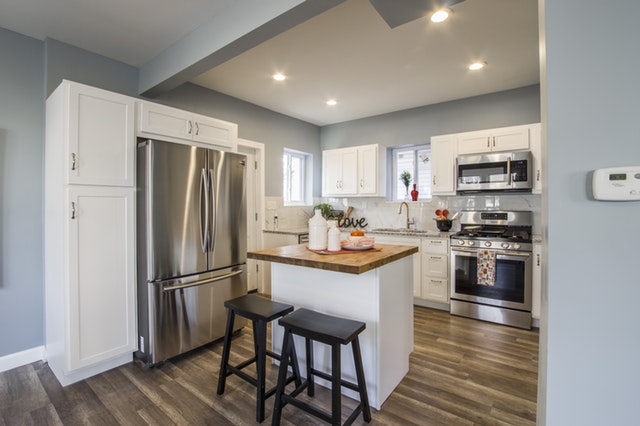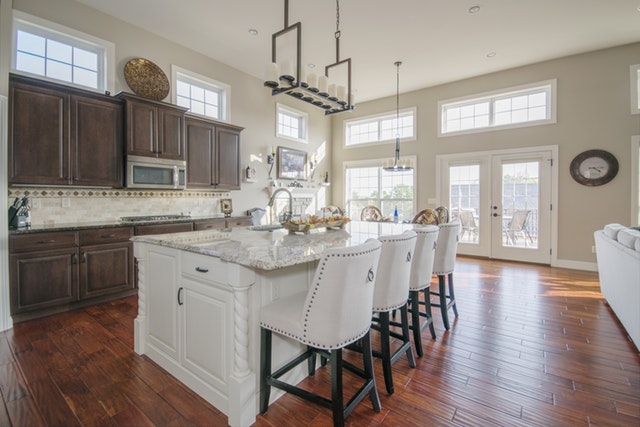 There’s a lot to be said for buying a move-in ready home. All you have to do is put your things away and start living your life. On the other hand, buying a fixer upper has its advantages, too. You can get a great bargain on a fixer upper home. So which one should you choose?
There’s a lot to be said for buying a move-in ready home. All you have to do is put your things away and start living your life. On the other hand, buying a fixer upper has its advantages, too. You can get a great bargain on a fixer upper home. So which one should you choose?
Here are some things to consider.
You Can Easily Afford To Buy What You Want
If money is no object, then a move-in ready home is the best choice. You’ll be able to get exactly the home you want with little or no effort decorating it the way you want. If you’re the kind of person who can hire an interior decorator, then you’ll likely want to spend time decorating, not reconstructing.
You Like A Challenge
If you think of owning a home as an adventure rather than a convenience, consider buying a fixer upper. You’ll have lots of interesting challenges, like figuring out where to buy those non-standard replacement windows, how to reinforce a floor for a tile installation and much more.
You’re Older And Just Want To Settle Down
Renovating a fixer upper requires energy and strength. If you’re older or you tire easily, buying a move-in ready home might be a better strategy. A fixer upper might be too much to handle if you attempt all the work without professional help.
Money Is Tight
If you feel you would be strapped financially to buy a move-in ready home with all the bells and whistles, consider a fixer upper. You’ll be able to easily handle the mortgage payment. You’ll be able to renovate on your own schedule, according to when you can afford new building materials.
You’re Looking For An Investment
If you’re looking to get fast equity out of your home purchase, a fixer upper is definitely a smart move. Once you complete the renovations you could refinance on the higher value and bank the profits.
As you can see, fixer uppers and move in ready homes are both good values, depending on your own situation. Hopefully this list of pros and cons will help you make the right choice for your lifestyle.
Call your trusted real estate professional to go over the options of fixer-upper properties and move-in ready homes available in your local market. They are always the best avenue to find your perfect new home fit.
 Divorce can be an incredibly emotional and financially stressful time. Questions about what happens to assets and the family home add to the anxiety. Each state has divorce laws that differ and that can complicates decision-making.
Divorce can be an incredibly emotional and financially stressful time. Questions about what happens to assets and the family home add to the anxiety. Each state has divorce laws that differ and that can complicates decision-making. If you have pet, you probably wonder what you can do to keep them safe after you decide to put your home up for sale. With all the disruption going on during a home sale, it’s all too easy for pets to get lost, frightened or even injured. Learn how to keep your beloved pets safe during your home sale.
If you have pet, you probably wonder what you can do to keep them safe after you decide to put your home up for sale. With all the disruption going on during a home sale, it’s all too easy for pets to get lost, frightened or even injured. Learn how to keep your beloved pets safe during your home sale. There are several things to do when you prepare to list your home for sale. One of the projects you’ll need to do is complete certain repairs. Your home should be in the best possible condition before your real estate agent shows it to potential buyers.
There are several things to do when you prepare to list your home for sale. One of the projects you’ll need to do is complete certain repairs. Your home should be in the best possible condition before your real estate agent shows it to potential buyers. Last week’s economic reports included readings on construction spending and Labor Department readings on private and public jobs growth. The Consumer Sentiment Index was released along with weekly readings on mortgage rates and new jobless claims.
Last week’s economic reports included readings on construction spending and Labor Department readings on private and public jobs growth. The Consumer Sentiment Index was released along with weekly readings on mortgage rates and new jobless claims. It can be confusing choosing the right countertop material for your kitchen. Here is a list of some common countertop materials along with their pros and cons. Knowing the differences will help you choose the right material to serve your needs.
It can be confusing choosing the right countertop material for your kitchen. Here is a list of some common countertop materials along with their pros and cons. Knowing the differences will help you choose the right material to serve your needs.